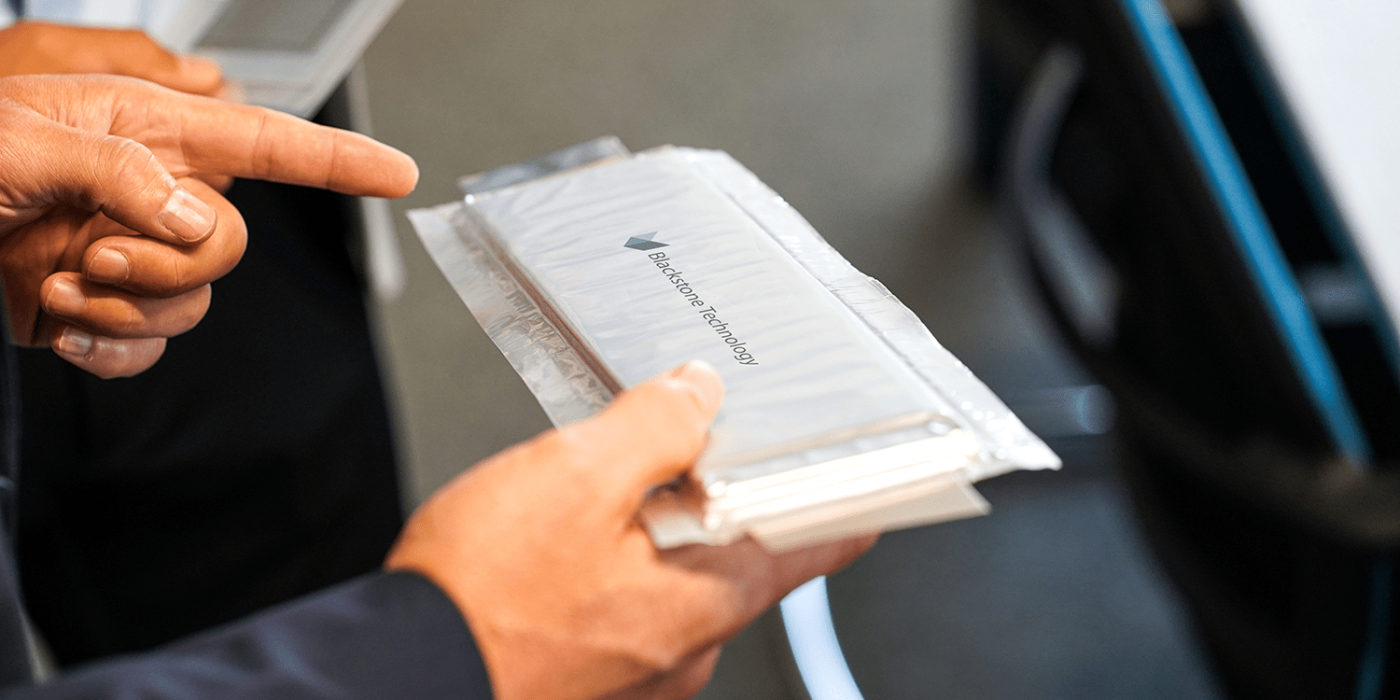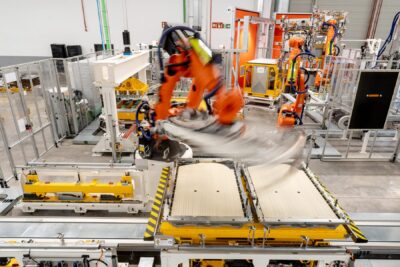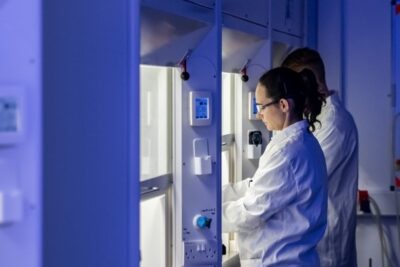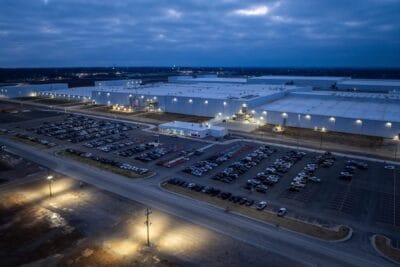Blackstone reaches production milestone with 3D printing
Blackstone Resources has announced the validation of 3D printing of battery cells and solid-state batteries with artificial intelligence. The validation by independent experts gives Blackstone access to further funding.
In February, Blackstone had shown a pre-production sample cell that was ready for mass production. At the time, the main focus was on energy density; the proprietary thick-film technology used by Blackstone Technology (the German subsidiary of the Swiss company) was said to enable “20 to 25 per cent higher energy density compared to current lithium-ion battery technology”. The technology can be used for the production of liquid electrolyte batteries, but also for solid-state batteries.
In the current announcement, Blackstone prioritises cost: Printing battery cells using the patented process reduces material costs by 20 euros per kWh through better utilisation of inactive materials (fewer collector foils and separators).
This information does not come from an investor presentation with optimistic forecasts, but is, according to Blackstone, based on a “solid scientific foundation”. As Serhat Yilmaz, Chief Marketing Officer of Blackstone Resources AG, explains, the Bern University of Applied Sciences (BFH) carried out a complex production simulation. “The validation process involved more than 250 process parameters and 90 product parameters to verify this unique production technique with our benchmark model,” Yilmaz says.
The study was commissioned by the funding agency Innosuisse. As the results were verified and confirmed, Innosuisse released another tranche of money for the project, which Blackstone says it will use to create further models for printing solid-state batteries. The simulation had also shown that production costs could be reduced by about 20 per cent.
In parallel to this validation process, Blackstone Technology has worked with Saxony-based Symate GmbH to develop an artificial intelligence (AI) system that will be integrated into the production of printed electrodes and battery cells by December 2021. “This will allow the mathematical models developed by BFH to be fed with data from the AI Life system for the first time,” explains Yilmaz. “We can thus optimize our production processes cyclically and in real time.” From the testing of the starting materials to the selection of the recipe, processing and production of the battery cell, all relevant parameters can thus be recorded in a system, optimised and analysed using AI predictions.
Yilmaz also mentions further details: “By eliminating long drying lines and toxic solvents, we can sustainably reduce energy consumption in electrode manufacturing,” says the CMO. “In this way, we have created a valuable basis for the future production of new solid-state or solid-state batteries that will set new standards in terms of energy density, charging speed and safety – while keeping costs and environmental impacts moderate.”
Incidentally, Yilmaz has only been chief marketing officer at Blackstone Resources AG since September 2021. However, Yilmaz is not new to electromobility: before moving to Switzerland, he was CMO for six months at the conversion specialist Framo, to which he had moved from competitor Quantron.





0 Comments